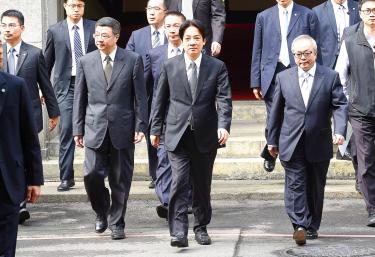The Cabinet has approved an amendment to the Labor Standards Act (勞動基準法) that relaxes the rules on the maximum number of consecutive working days and the calculation of overtime.
The act stipulates a flexible five-day workweek, with one mandatory day off and one “rest day” on which employees can be asked to work.
The amendment relaxes the weekly mandatory off day rule, meaning employees in certain industries would be able to work up to 12 consecutive days.
The amendment allows certain industries to adopt a biweekly work roster, authorizing employers to adjust workdays and days off within a 14-day period with approval from the Ministry of Labor and their workers’ union.
The cap on total overtime hours is to be increased from 46 hours per month to 54 hours per month, provided that total overtime hours do not exceed 138 in a three-month period.
The proposed amendment would also modify a special overtime rule for “rest days.”
Currently, employees working on “rest days” are to be compensated with an overtime rate of at least 233 percent of their regular hourly rate. Working hours on rest days are counted in four or eight-hour periods if a person works between one and four hours or between five and eight hours respectively.
The amendment would retain the overtime rate, but it would be paid based on the hours actually worked.
It would keep the minimum rest time between shifts at 11 hours, but allow businesses to reduce it to between eight and 11 hours with the consent of employees or their workers’ union.
The amendment would also allow for a one-year extension of unused annual leave days, while employers would be required to pay departing employees any unused annual leave.
“The ‘one mandatory day off and one rest day’ system was an accident of the labor legislation last year which has severely restricted work flexibility for employers and employees,” Premier William Lai (賴清德) said.
“We have seen workers deprived of overtime opportunities because of the restrictions of the system, which offers [higher, but] unattainable overtime payments, so people have had to do additional jobs to make ends meet. How can the government turn a blind eye to these problems?” Lai said.
“Economic development is what concerns the public most,” Lai said. “The amendment ensures flexibility for both businesses and workers, and we call for the support of both the ruling and opposing parties to develop the economy.”
Minister of Labor Lin Mei-chu (林美珠) said the amendment would not change working hours, with two days off every week, total overtime hours or the overtime rate.
The amendment would ensure flexibility on overtime, workday arrangements, shift arrangements and annual leave, Lin said.
While the amendment has been criticized as a backward step that would return working conditions to where they were 30 years ago, Minister Without Portfolio Lin Wan-i (林萬億) said work flexibility is a goal sought by all developed nations, so the legislation is actually progress.
The labor inspection mechanism is in place to prevent abuse of the new flexibility, Lin Wan-i said.
The Cabinet would also set up a protocol for negotiations between employees and employers to ensure workers’ rights, Lai said in response to skepticism that workers and unions often have little say in such negotiations.
The amendment would not reinstate the seven national holidays that were scrapped during the ‘one mandatory day off and one rest day’ legislation because the legislation also stipulated an increase in annual leave, Lin Wan-i added.




